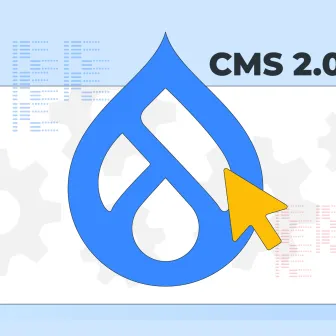The templating engine of Drupal 8 has seen a massive turnaround. Unlike Drupal 7, there’s Twig in Drupal 8 instead of PHPTemplate. Twig is basically a templating language for PHP i.e a tool used to output variables inside HTML. Fabien Potencier, the creator of the Symfony framework, gave life to Twig. Contrary to Drupal 7, you cannot call the regular PHP functions in your templates in Drupal 8. The way forward, in Drupal 8, is to create filters and functions.

Twig extension gives more flexibility to process nearly anything inside the twig. Twig can be extended in many ways such as tags, filters, operators, global variables, and functions.
One of the major plus points of creating a twig extension in Drupal 8 is in the view.
Drupal 8 views can often be more challenging in the case where you want to perform operations on the value or need to process the content in the field. When you need to write code often, try to reuse it rather than writing it from scratch every time.
You must use a filter when you want to transform the data you want to display. Imagine you have a title that you always want to be capitalized. For example, twig has the capitalize filter that allows you to transform any text into its equivalent in uppercase.
I came across Twig Extension during one of my E-commerce projects where I had to print dynamic currency name. Drupal Commerce allows only 3 characters long currency code and they have also implemented their own Twig Extension to convert Price object into equivalent price format. So to handle this case where I have to show currency name with more number of characters, I had implemented my own Twig Extension. Similarly, there are several other cases where these Twig Extension can be very handful.
Let’s see an example where we will create a filter that will allow us to count the number of words in the article. The process of creating filters and functions is exactly the same as normal Twig. Also, you can use word count to display the reading time of the article or any other use case as per the requirement.
The main difference between regular Twig and Drupal 8 Twig is that, in Drupal 8, you must create a service definition of the class you are creating and the class must also belong to a namespace, otherwise it will not be registered as a Twig filter in the Drupal environment.
This example assumes you have a module called:
twig_word_count_extension
This will be the basic definition of the inn service.
twig_word_count_extension.services.yml
services:
twig_word_count_extension.twig_extension:
class: Drupal\twig_word_count_extension\TwigExtension\TwigWordCountExtension
tags:
- { name: twig.extension }
The key tags are also absolutely necessary and that is what Drupal tells you what this class is supposed to do (that is, register it as an extension of Twig).
And now the source code that should be placed in the path defined in the class service definition key.
<?php
namespace Drupal\twig_word_count_extension\TwigExtension;
use Twig_Extension;
use Twig_SimpleFilter;
class TwigWordCountExtension extends \Twig_Extension {
/**
* This is the same name we used on the services.yml file
*/
public function getName() {
return 'twig_word_count_extension.twig_extension';
}
// Basic definition of the filter. You can have multiple filters of course.
public function getFilters() {
return [
new Twig_SimpleFilter('word_count', [$this, 'wordCountFilter']),
];
}
// The actual implementation of the filter.
public function wordCountFilter($context) {
if(is_string($context)) {
$context = str_word_count($context);
}
return $context;
}
}
Clear your caches and now, if everything goes according to plan, you can use the filter in your templates.
{{ "shuffle me!" | word_count }} {# Return 2. #}
Note: If these twig extensions don’t have other service dependencies (i.e. if you don't inject services in them), the performance is not affected. However, if these extensions have lots of complex dependencies, for example, say those making database connections or perform heavy operations, the performance loss can be significant.
To avail help from our experts for your Drupal projects, you can check out our suite of services. You can also talk to us at [email protected].
Subscribe
Related Blogs
Drupal's Role as an MCP Server: A Practical Guide for Developers

"The MCP provides a universal open standard that allows AI models to access real-world data sources securely without custom…
What’s New in Drupal CMS 2.0: A Complete Overview

"Drupal CMS 2.0 marks a significant change in the construction of Drupal websites, integrating visual site building, AI…
Drupal AI Ecosystem Part 6: ECA Module & Its Integration with AI

Modern Drupal sites demand automation, consistency, and predictable workflows. With Drupal’s ECA module, these capabilities…




